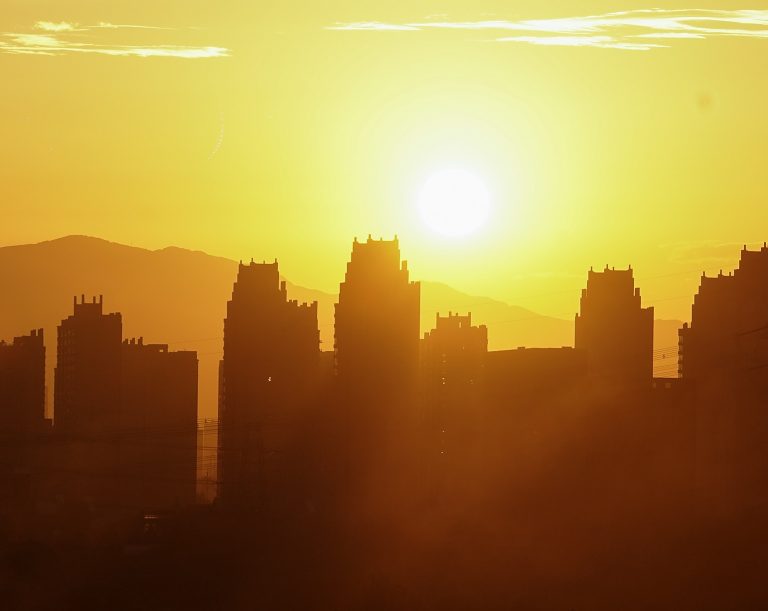China’s real estate giant, Evergrande, is teetering on the brink of bankruptcy, unable to service its debts. One of the most indebted private conglomerates in China, the company’s shares, listed in Hong Kong, have crashed this year as investors are worried about the firm’s financial health. After hitting a peak of 17.26 HKD on Jan. 19, the company’s shares are now trading at around 3.62 HKD.
Evergrande has operations in over 280 cities. Primarily a real estate firm, the company has ventured into other sectors in recent years like the food market, mineral water, amusement parks, insurance, health, digital operations, and tourism. However, debt levels have risen to stratospheric levels. The group recently said that its total liabilities stood at 1.97 trillion yuan (305 billion dollars), which is roughly equal to the public debt of Portugal, and also warned of “risks of defaults and borrowings.”
Some suppliers and contractors have started complaining that Evergrande is missing out on payments. A few creditors are demanding immediate loan payback. According to financial intelligence provider REDD, Evergrande plans on suspending interest payments on loans to two banks that are due on Sept. 21. The company is due to pay back 15 billion dollars to creditors by the end of this year. However, as of late June, the firm only had 13 billion dollars in its accounts. Banks have become reluctant to finance the company further.
In August, ratings agency Moody’s downgraded Evergrande’s strength rating, as it lost confidence in the company’s repayment ability. The agency rating indicated that the firm was “likely in, or very near, default.” Goldman Sachs also downgraded its rating of the stock from “neutral” to “sell.”
In addition, Fitch lowered its ratings of the company with the expectation that some kind of default is possible. “We believe credit risk is high given tight liquidity, declining contracted sales, pressure to address delayed payments to suppliers and contractors, and limited progress on asset disposals,” Fitch Ratings said.
Success
You are now signed up for our newsletter
Success
Check your email to complete sign up
China Chengxin International Credit Rating Co (CCXI) recently downgraded Evergrande’s onshore bond rating from AAA and AA. On Sept. 6, bonds issued by the company slumped by more than 25 percent, forcing the Shanghai Stock Exchange to temporarily suspend trading.
According to a Sept. 9 report by Bloomberg, the Financial Stability and Development Committee, the nation’s top financial regulator, has signed off on Evergrande’s proposal to renegotiate its payment deadlines with lenders. The company has reportedly contacted trusts and banks, requesting deadline extensions.
“The development suggests Evergrande has regulatory backing to negotiate with creditors on a piecemeal basis, as it tries to ease a cash crunch that has unnerved investors in China’s $12 trillion bond market. While the company’s main banks had discussed setting up a creditor committee as recently as last week to consolidate repayment decisions, lenders and regulators have decided to give Evergrande more time to solve its liquidity crisis before taking more drastic measures,” the article states.
Beijing sees Evergrande as a “grey rhino,” which is a large company that has such high levels of debt that it presents systemic financial risk. The company employs around 200,000 individuals directly, while supporting more than three million indirect jobs. As banks are reluctant to supply funds, Evergrande is finding it difficult to finish its real estate projects, which, in turn, deprives it of cash inflows.
For the first six months this year, the company’s net income has fallen by 29 percent compared to last year. As such, the firm will now have to try reducing debt levels while ensuring that it remains profitable.
“In a normal market economy, Evergrande would have gone bankrupt a long time ago… The rule was that as long as a company looked like it was moving forward – with plenty of projects in the pipeline – the banks gave it credit on the understanding that the strength of Chinese economic growth would always deliver profits,” Jean-François Dufour, head of French, China-focused consulting firm DCA Chine-Analyse, said to France24.
Over the past year, Beijing has been pushing companies with a huge debt to deleverage. However, the Chinese regime faces a challenge with Evergrande because if the company crumbles, there could be “profound consequences” for the overall economy.
Dufour believes that at least one bank would “go under” if Evergrande were to become bankrupt. Other banks would then hesitate to provide loans to high-debt companies, which would have serious consequences for China’s economic growth. The collapse of Evergrande would have repercussions in the international market, as investors include global names like BlackRock, Allianz, and Ashmore.
Given such severe potential consequences, experts believe that Beijing will force a debt restructuring program on the company, and make creditors agree to its plans. Evergrande could also come under state control.
Larry Ong, China analyst with political consultancy SinoInsider, told AFP that the “best-case scenario” for Evergrande is that the Chinese government some some way to prevent the company from going bankrupt, and “give the company’s creditors a glimmer of hope that they will walk away from the debacle with at least something, and avert the triggering of greater social unrest.”
A bailout, Ong said, would be counterproductive to Beijing’s needs, as it would “only signal to other debt-laden property companies and financial institutions that they can get away with the sort of practices that the government is trying to stamp out.”

















